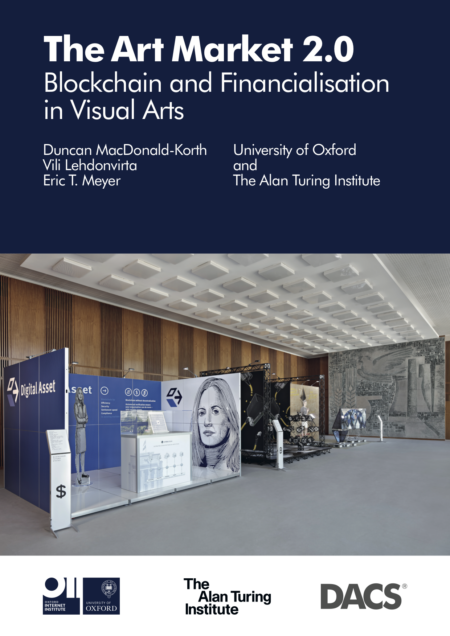
Duncan MacDonald-Korth
Alan Turing Institute

Blockchain has shot to prominence with the rise of decentralised digital currencies like Bitcoin. Yet, there is also increasing interest in blockchain’s potential to revolutionise other areas of life.
This report examines the potential impacts of blockchain technologies on the art market. Using a primarily interview-based approach with sector experts, the report analyses how and in what specific areas blockchain technologies could be used to change the composition of the art market, including the method of sale, record of provenance, and transparency of ownership. It also considers how blockchain technologies may change the balance of economic power in the art market, integrate art into the financial sector, and whether the art industry is likely to grow more or less consolidated as blockchain and/or other digital technologies are introduced. Finally, the report proposes the creation of a new fair trading standard for the art market, and argues that London will need to fight to maintain its dominant position in the art market.